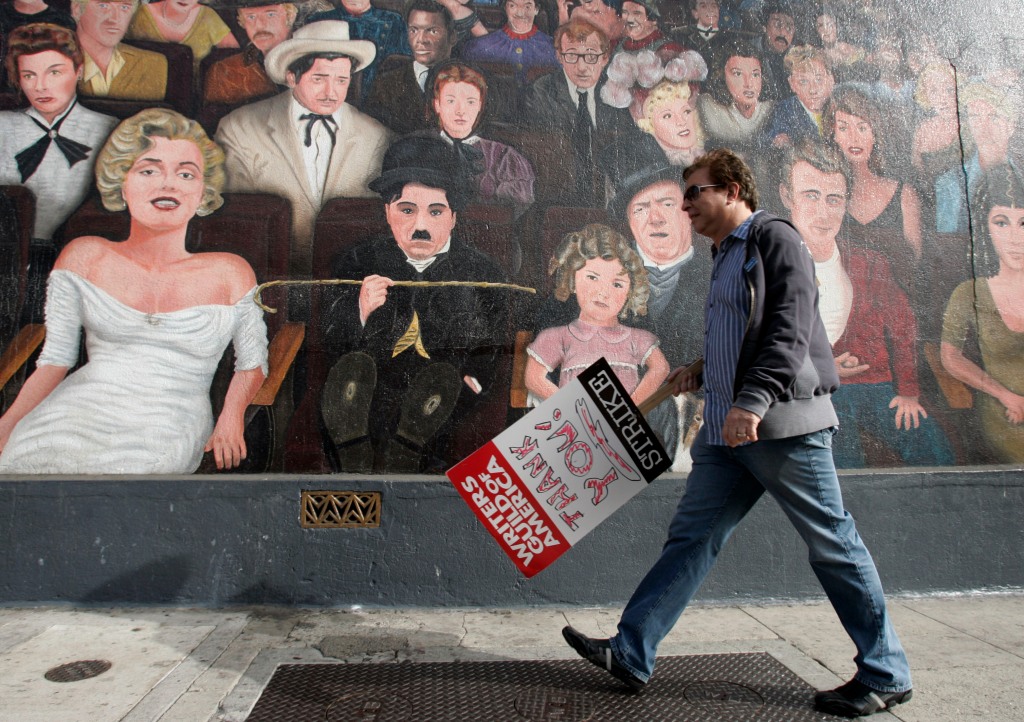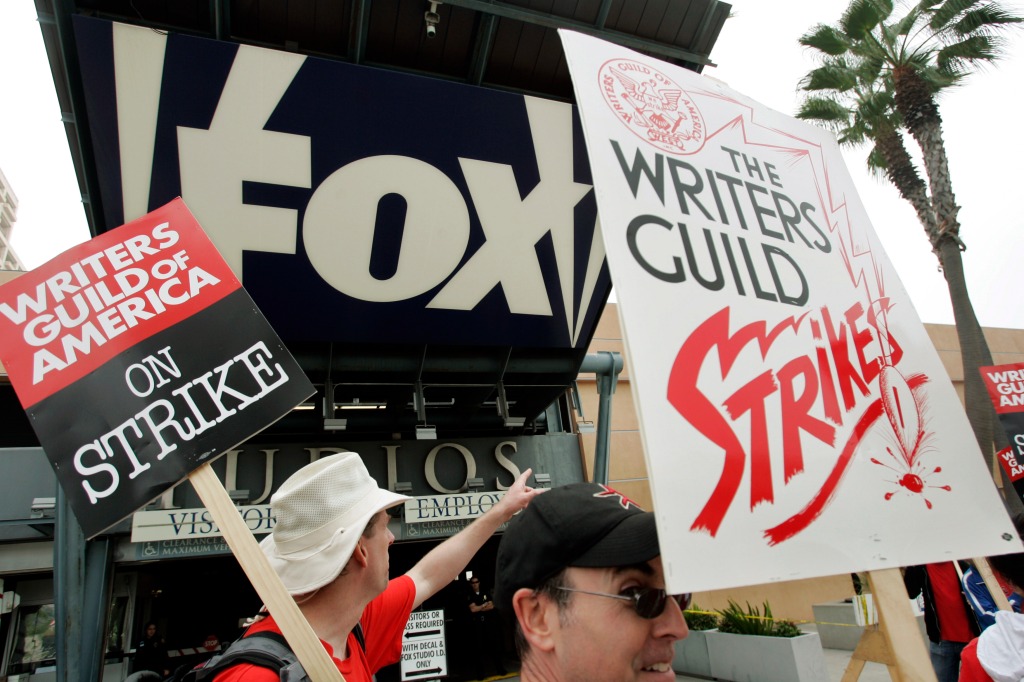Hollywood writers from Writers Guild of America go on strike for first time in 15 years
Thousands of film and television writers will head to the picket lines Tuesday to fight for pay increases and other benefits in the first strike Hollywood has seen in 15 years.
The Writers Guild of America (WGA) announced that its 11,500 screenwriter members in California, New York and other cities will refuse to work after the union and studios failed to agree on a new three-year contract after their current one expired just after midnight.
The board of directors at WGA, who voted unanimously to call for a strike, claimed that the leading companies have made it difficult for writers to hold down a steady job.
“The companies’ behavior has created a gig economy inside a union workforce, and their immovable stance in this negotiation has betrayed a commitment to further devaluing the profession of writing,” the WGA said in a statement.
“From their refusal to guarantee any level of weekly employment in episodic television, to the creation of a ‘day rate’ in comedy variety, to their stonewalling on free work for screenwriters and on AI for all writers, they have closed the door on their labor force and opened the door to writing as an entirely freelance profession,” the labor union continued.
On the opposite side of the table, the trade association representing the major studios and production companies, the Alliance of Motion Picture and Television Producers (AMPTP), said it offered writers “generous increases in compensation … as well as improvements in streaming residuals.”
The alliance, which bargains on behalf of the major players, said it was open to improving its offer “but was unwilling to do so because the magnitude of other proposals still on the table that the guild continues to insist upon.”
An overwhelming majority of writers represented by WGA voted to authorize a strike, with 98% in support and just 2% against.
The last time Hollywood writers went on strike in 2007, the work stoppage lasted 100 days and its effects reverberated beyond the movie and TV business.

Today, streaming services have completely changed the industry and the WGA said the old system for how screenwriters are compensated, including for residuals, needs to be completely revamped.
The guild claims that showrunners for series on streaming platforms earn just 46% of the pay that showrunners on broadcast series are paid and no longer benefit from after-production compensation like syndication and international licensing.
About half of writers are being paid minimum rates — a roughly 16% increase from 10 years ago.

And up-front pay has diminished as well as series are no longer expected to fit into a 20-plus episode broadcast season and often are produced as “limited series” or dumped after a season.
The proliferation of so-called “minirooms” in which a smaller group of writers are hired to write out the general plot of a show before it’s approved for a full script have also worsened writers’ pay gaps from years earlier, according to WGA.
Meanwhile, studios and production companies are facing a budget crunch in order to turn a profit and have slashed hundreds of jobs as a result.
A strike has been seen as inevitable by many in the show business, though it’s unclear how long the walkout will last.
Other workers within the industry, such as set designers, light and audio techs, makeup artists, costume designers and more are expected to be impacted as well as movie and tv sets turn dark.
Many streaming services have been preparing for a strike with a library of shows on hand. Its effects will first be seen by viewers on late night talk shows, like “Late Night” with Seth Meyers.
On Friday’s episode, Meyers, a WGA member, said he supported the union’s demands but warned viewers of what could be coming.
“It doesn’t just affect the writers, it affects all the incredible non-writing staff on these shows,” he said. “And it would really be a miserable thing for people to have to go through, especially considering we’re on the heels of that awful pandemic that affected, not just show business, but all of us.”
With Post wires
Read the full article Here


